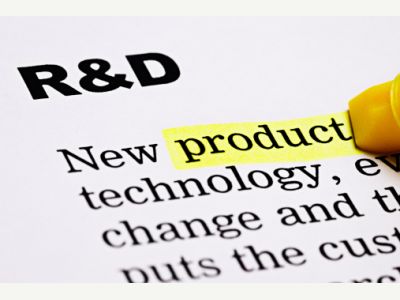You have an idea. You believe it meets a vital need in the marketplace and you have a basic concept of what your product looks like and how it might function.
But you’re a start-up company, not an established business. Do you even want to be an entrepreneur? Who will you find to help? Are you ready to begin product development?
You hesitate. It’s just an idea. You don’t really know what the product will be, only what it needs to accomplish. You decide no, you’re not ready.
You may be wrong.
Sure, your idea is not clearly defined right now and you might not have any technical experience, but think of product development companies such as Keystone Solutions Group as your engineering team and your operations. Half-baked ideas that, nevertheless, have the key ingredients of creativity, a clearly identified need, and a basic concept of how to fill that need, are what we live for.
For you to decide if you’re ready for product development, you need to begin by asking the right questions about what you bring to the table. In that way, the big question on whether to move forward often answers itself and we’ll help define the product development pathway.
Do you know the market?
What expertise do you have in your target market? How well do you know its needs and its specific market forces and requirements? Have you studied it enough to truly understand it?
If your idea is a medical device, do you know the device classification, predicate devices, and do you understand the rigors and requirements of developing a regulated product?
You may have worked extensively in the field you’re targeting, or studied it intensely as part of a sales effort. Either way, what you or your partners need to bring to the table is more than a general understanding of the market. You need to identify that segment of the market that will respond to the product you’re creating and understand the sales channel.
Is your idea focused?
Markets have broad needs. You can’t fill those needs in one fell swoop. Is yours a stand-alone product or is it a suite of product offerings? Do you desire to launch with a minimally viable product to start gaining revenue or do you want to launch with a highly refined disruptive product that gains instant brand recognition? You may have identified technical issues or a key problem that prevents progress on meeting those needs. Identifying the value of a product that resolves a single market issue is a strong qualification for product development.
Do you understand the sales channels?
If you don’t want to own the marketing and sales, you may be too divorced from the market to make development and commercialization of your product work. Does a medical research scientist or invertor suddenly become a full-time salesman? You may not make the phone calls and run day-to-day sales, but if you really believe in your idea, you become the best person to pitch it.
It has taken years’ for the technical people at Keystone to admit it, but often times the product development and technical aspects of the project can be easier and happen faster than the sales channel development and market adoption portion of the project. You or your partners need to know who the true customer is, why people will buy your product, and how to reach those potential customers.
How well is your I/P covered and what is your regulatory strategy?
Product development and patent protection are two different projects within the project. Many inventors and start-up companies don’t have a true understanding of what regulatory strategy even means.
Here’s the issue: let’s say you have your new product concept sitting in the middle of a table and you’re meeting with a patent attorney, you want to convince them and the US Patent Office that nobody has ever seen anything quite like this before. Now take the same product and sit down with a regulatory attorney or with the FDA and you want to convince them that it’s safe and just like other products on the market!
The same product with two different strategies. How well you can grasp that reality and your willingness to learn about regulations might be one of the most valuable things that you can bring to the table.
Do have a napkin sketch of your idea? Have you cobbled together a prototype?
Ok, we’ll take a look at that. But we understand that your concept for a product is a starting point. When Keystone Product Development takes on a project, we can offer our engineering resources and manage the entire product development cycle. While we bring extensive design, engineering and management expertise to a project, it’s up to you to bring a market understanding and commitment to sales beyond the development stage that can make the project ultimately both an engineering and marketplace success.
